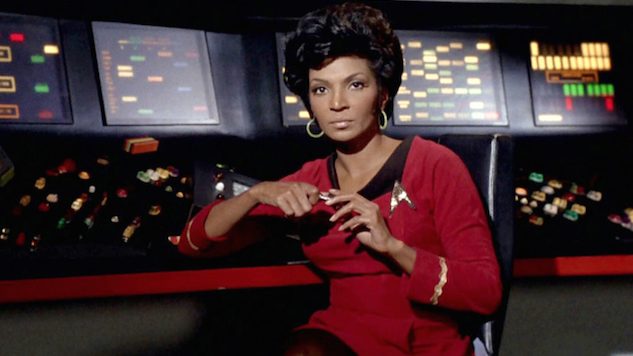There is a perceived rivalry within science—ask an engineer and they will say that user experience folk aren’t doing “real” science. Science tends to be thought of as only things like chemistry (and particular kinds, at that), biology, physics—science is equations on a chalkboard or beakers full of mysterious liquids. Especially in popular media, which now includes technology—we have Java or C treated similarly to the equations, we have programming and electric engineering to make robots do what we want.
Popular media does includes some examples of the scientific study of language. Part of the problem, however, is that these characters’ specialties tend to be seen as a general “soft” character—more so in the case of a male character—than an action hero or respected academic. As such, these characters get combined with other tropes, but as representations, these characters are very powerful. While I confess I had training in sociolinguistics for my Master’s degree, due to specializing in online language usage, I am biased—but only in the same sense as an engineer defends their own choice of discipline, or a fan talks about the merits of Star Wars and Star Trek.
Speaking of Star Trek, let’s begin.
Who are these characters specializing in language in media? And what do I mean by the “scientific study of language?”
Uhura: “Xenolinguistics. You have no idea what that means.”
Kirk: “The study of alien languages. Morphology, phonology, syntax…”
Nyota Uhura is an example of what a xenolinguistic specialist may look like—however, again, some of her functions seem to be conflated with her being able to translate or interpret. But in the Star Trek (2008) film, we get the dialogue above: Kirk correctly and succinctly defines the study of linguistics, only as applied to languages not used on Earth. Uhura becomes part of the bridge crew due to not only being able to interpret between different languages, but also to recognize different dialects of the same language and due to her skills in pattern recognition. The fact that Uhura is on the bridge crew of the USS Enterprise throughout Star Trek’s seminal run is not only a nod to how important communication was seen, but also noting that while Uhura’s capacity in linguistics is not engineering or biology, it is a field of study worthy of any commanding officer of the United Federation of Planets.
Linguistics can be more like pattern recognition than just “speaking another language”—while there is anecdotal overlap between people who study linguistics and people who know multiple languages (or multiple dialects), a person who knows multiple languages may not necessarily be a linguist. Linguists recognize the continuing interplay between sounds and meaning, and seek to analyze both in relation to each other. Morphology, for example, is the sub-field of the formation and composition of sounds. Stylistics is the study of discourse through speech communities, and tends to contribute to fields like sociolinguistics (like how class markers are reflected through speech patterns and phonemes) and the study of language acquisition in both adults and in children.
Linguistics can be involved with anthropology in things like language documentation, with which we collect dictionaries and contribute to computational linguistics—computational linguistics being part of what drives software like Google Translate and Siri. Speaking of anthropology and archeology, we do see a character do that. For nearly 10 seasons, even.
Daniel Jackson from the Stargate franchise is presented as a nerd hero. He’s the discredited young Egyptologist academic whose hypotheses are later proven to be correct beyond his dreams. And while he does become more action-oriented as Stargate SG-1 progressed, we see him talk about the importance of language—he prefers to talk first, rather than shoot. In the film, his expertise of ancient Egyptian helps him recognize the spoken language as a dialect that evolved independently. Derivations from ancient Egyptian’s lack of written vowels leaves even Earthside experts in our non-fictional universe guessing.
In Arrival, Louise Banks melds xenolinguistics, language documentation and underlying pattern recognition—even within the film, however, her specialty is derided as “not real” science by her male (theoretical physicist) counterpart Ian Donnelly. After quoting from a book on linguistics Banks wrote, Ian says flatly that she’s wrong:
“Well, the cornerstone of civilization isn’t language. It’s science.”
This is a succinct rendition of how language study tends to be viewed by those outside of it: that the scientific study of language isn’t science. This also, of course, ties into other things (such as sexism and whatnot, plus trying to use dialogue as characterization in media) but detailing such factors is beyond the scope of this article; suffice it to say, Arrival tries to detail the work of documenting and recognizing patterns of a completely unfamiliar system.
Without linguistics, we would not have virtual assistants like Siri or Cortana, or even VoiceOver or screen reading software. We would not have Google Translate, we would not even have dictionaries. Nor could we use linguistics to study for forged documents, to see how a person’s spelling and language usage differs from another’s language usage.
Katriel Paige is a tester and writer, who writes on topics ranging from technology to science fiction to other aspects of pop culture.
